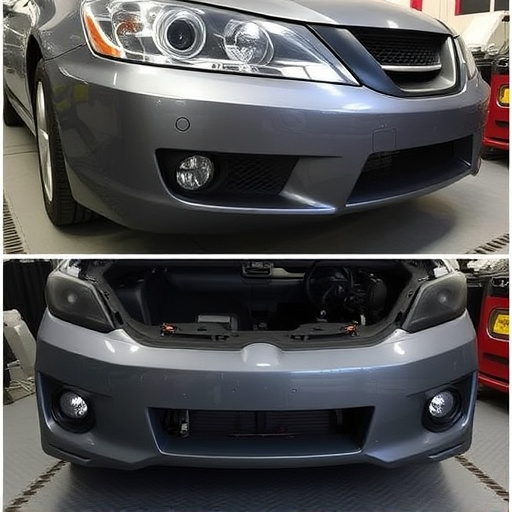Seasonal collision repair shops maximize efficiency during peak seasons through strategic planning, advanced booking systems, specialized staff training, and digital inventory management. They ensure prompt service and maintain quality by extending staff hours, hiring temporary workers, leveraging technology for stock control, and implementing effective communication channels. Regular training sessions and digital platforms improve productivity, allowing these shops to handle increased demand without compromising standards.
In the dynamic landscape of automotive services, seasonal collision repair shops face unique challenges during peak seasons. This article explores proven strategies that keep these businesses running smoothly under intense pressure. From managing soaring demand during busy periods to optimizing inventory management and leveraging effective staff training and communication, discover how these tactics ensure efficiency and customer satisfaction in the volatile world of seasonal collision repair.
- Managing Peak Demand During Busy Seasons
- Efficient Inventory Management Strategies
- Staff Training and Communication Tactics
Managing Peak Demand During Busy Seasons

During peak seasons, like spring and winter when accidents tend to surge due to adverse weather conditions, efficient management of demand is key for any seasonal collision repair shop. To cope with this influx, these shops need to be agile in their operations, ensuring that resources are optimally allocated to meet the higher volume of work without compromising quality. This involves strategic planning, such as increasing staff hours, hiring temporary workers, and procuring additional equipment to handle the increased workload.
Effective scheduling systems play a vital role in managing peak demand. Auto repair shops can implement advanced booking systems that allow customers to reserve slots well in advance, helping to forecast and distribute work evenly throughout the day. Moreover, specialized training for staff on rapid vehicle body repair and auto glass replacement ensures that services are delivered promptly, catering to both regular and seasonal customers alike.
Efficient Inventory Management Strategies

Efficient inventory management is a key strategy for seasonal collision repair shops to maintain productivity during peak demand periods. By implementing rigorous stock control measures, these facilities can ensure that essential parts and tools are readily available, minimizing delays in vehicle dent repair and automotive repair processes. This involves meticulous tracking of incoming and outgoing inventory, regular audits, and the adoption of just-in-time (JIT) stocking practices to eliminate overstocking or shortages.
Additionally, leveraging technology for digital inventory management enhances accuracy, allowing staff to access real-time data on stock levels. This enables better planning for high-demand items, such as those required in vehicle restoration processes, ensuring that the shop is equipped to handle an influx of clients without compromising efficiency or quality of service during peak seasons.
Staff Training and Communication Tactics

Efficient communication and staff training are essential tactics for seasonal collision repair shops to maintain productivity during peak periods. With an influx of vehicle collisions, these businesses must ensure their team is well-prepared and coordinated. Regular training sessions can educate employees on the latest automotive body work techniques, safety protocols, and efficient shop management strategies.
Effective communication channels play a pivotal role in streamlining operations. Collision repair shops can implement digital systems for instant message passing, allowing technicians to share updates, request assistance, or inform managers about material needs. This real-time communication minimizes delays and ensures that every task is addressed promptly, even during hectic seasons. For specialized services like Mercedes-Benz collision repair, such tactics prove invaluable in maintaining quality standards while managing increased demand.
Seasonal collision repair shops face unique challenges during peak seasons, but by implementing effective strategies in managing demand, inventory, and staff, they can maintain efficiency and deliver superior service. Efficient inventory management ensures essential parts are readily available, while staff training and open communication improve productivity and customer satisfaction. By adopting these tactics, seasonal collision repair shops can navigate busy periods successfully, ensuring a smooth and profitable operation throughout the year.














